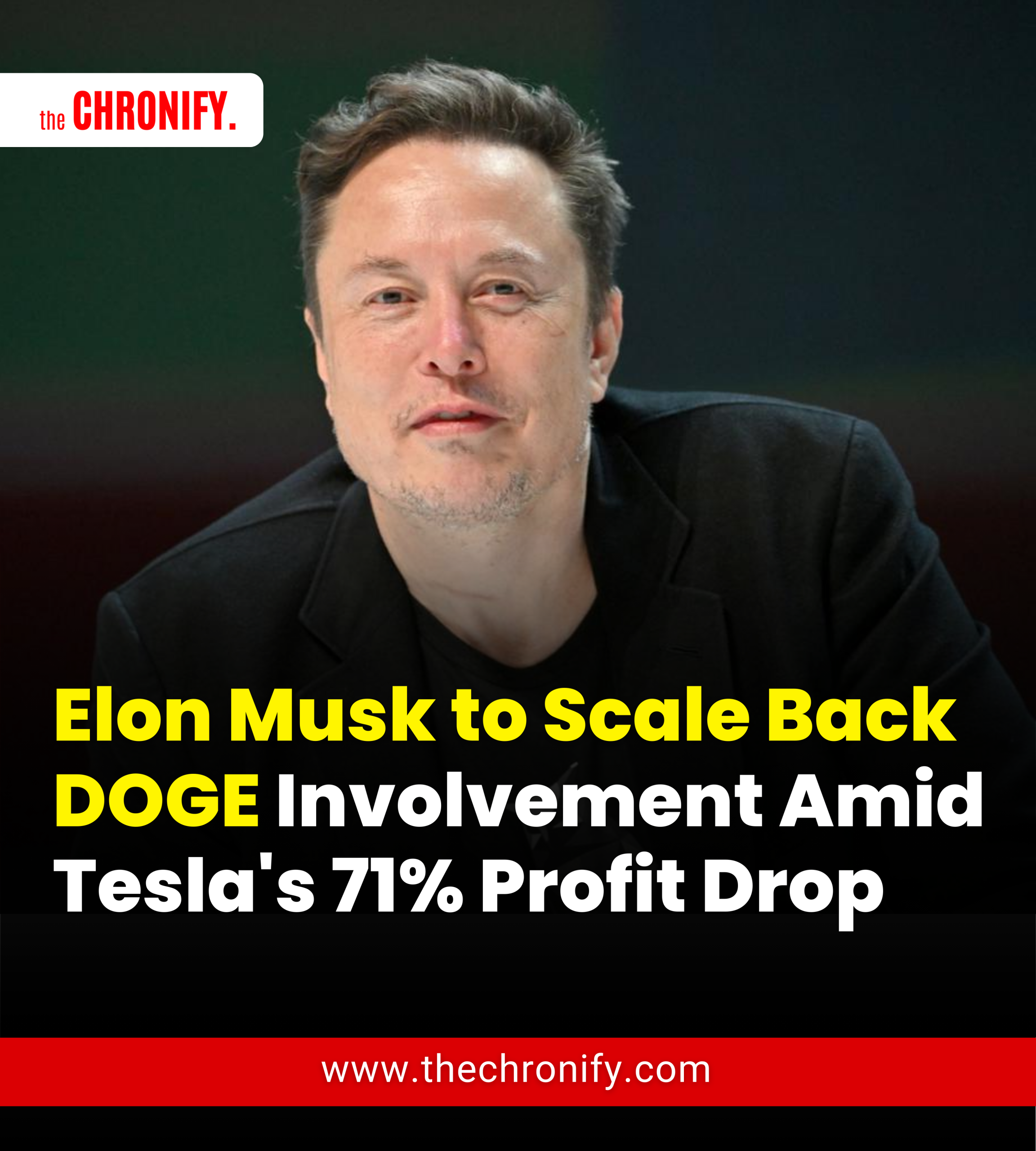Elon Musk to Cut Back on Government Role as Tesla Faces Sharp Profit Decline
Tesla CEO Elon Musk has announced plans to scale down his involvement with the Department of Government Efficiency (DOGE) following a steep 71% drop in the company’s quarterly profits. Despite the financial hit, Musk stated he has no intentions of ending his work with the federal government entirely.
“If the ship of America goes down, we all go down with it,” Musk told analysts and investors during a post-earnings conference call, defending the time he has spent targeting federal government spending. He also claimed, without evidence, that recent protests against Tesla were funded, and maintained that consumer demand for Tesla vehicles remains strong.
Tesla’s earnings report, released just before the call, revealed a significant year-on-year drop in net income and a 20% decline in revenue from vehicle sales. Analysts had expected a poor showing following a 13% drop in Tesla deliveries during Q1 2025 — the company’s largest-ever quarterly sales decline. Meanwhile, the broader EV market saw a 7% increase during the same period.
Musk and other executives blamed several factors for the slump, including customers delaying purchases while waiting for a refreshed Model Y. However, growing brand damage — particularly among liberal-leaning consumers — is believed to have played a major role. Surveys suggest Tesla’s association with Musk’s political activities has hurt its image, especially among Democrat-leaning EV shoppers.
Public backlash has included showroom protests and vandalism of Tesla vehicles. Musk dismissed the criticism, claiming opposition stemmed from those losing “fraudulent” federal funds due to DOGE efforts. Protest organizers countered that they are volunteers, not paid demonstrators.
Meanwhile, used Tesla prices have plummeted over 10% in the past year, compared to a 1% increase in the broader used car market. That decline hits both owners and Tesla itself, which retains ownership of leased vehicles. Tesla acknowledged that falling used-car values contributed to reduced profits. Additional pressures include tariffs and slowing demand in key markets.
Despite recent financial setbacks, Musk dismissed concerns about Tesla’s future, saying the company is not “on the ragged edge of death.” He reiterated his belief that the company’s long-term success will come from autonomous technologies like robotaxis, rather than traditional vehicle sales.
Musk also indicated he would continue dedicating limited time — one to two days per week — to DOGE, stating that much of the department’s work was “mostly done.” He emphasized that he would remain involved as long as it was useful and welcomed by the president.
The statement was enough to reassure some investors. Longtime Tesla advocate Dan Ives described the update as the “beginning of the end” of Musk’s role in the Trump administration. Following the call, Tesla shares saw a modest rise in after-hours trading.
Even with declining sales, Tesla remains the top EV seller in the U.S., but its market share has slipped below 50%. Internationally, the company is facing stiff competition from Chinese manufacturer BYD, which is quickly catching up in global EV sales.
Musk remained confident in Tesla’s future, particularly in AI technology, which he claims will keep the company at the top. “I’m a little concerned that on the leaderboard, ranked two through 10 will be Chinese companies,” he said. “But I’m not worried that rank one will be Tesla.”

